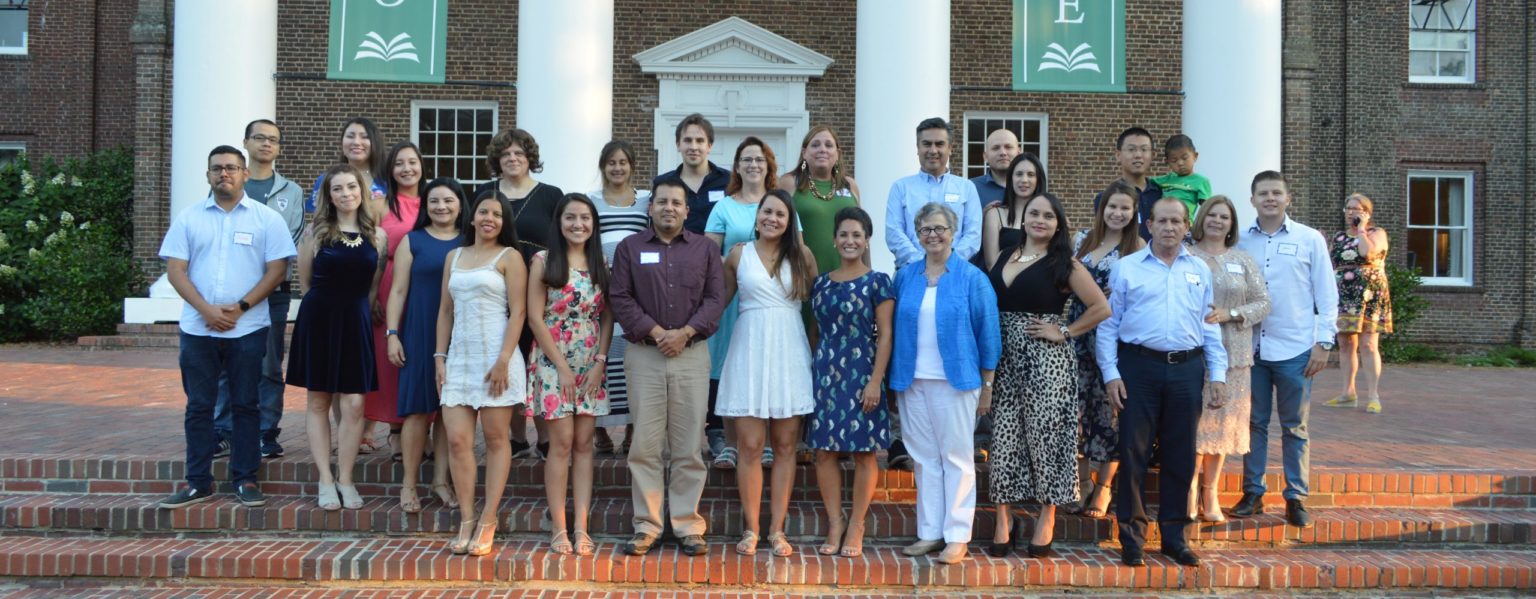
TESOL Curriculum
(Required courses are denoted with *)
OL = online
F2F = face-to-face
*ENG 5300 ENGLISH GRAMMAR (FALL OL, 2ND SUMMER F2F)
This is a study of American English emphasizing grammar through the traditional, functional, and descriptive approaches. It includes a study of syntax, semantics, dialectology linguistic geography, and usage. The course is designed to provide competency in teaching English grammar and usage.
*ENG 5310 GENERAL LINGUISTICS (SPRING, SUMMER OL, 2ND SUMMER F2F)
This course covers the basic principles of language study (phonology, morphology, syntax, semantics, lexicon), including a history of the English language. Among the topics covered are word origins; linguistic developments; the study of dialect, structure, and meaning; first and subsequent language acquisition and learning; and the social uses of language in oral and written forms. This course will examine the influence of power, race, class, and gender on the development of languages through and across time.
ENG 5320 PRACTICUM IN APPLIED LINGUISTICS (FALL OL)
This field experience provides multiple opportunities to (1) evaluate and assess linguistic competence and performance in native and non-native English speakers and (2) plan appropriate curriculum and materials. Focus will center on morphological, phonological, syntactic, and semantic systems in the diverse, multilingual and/or multidialectal classroom. Prerequisite: ENG 5310 with a grade of C or better.
ENG 5330 LANGUAGE AND CULTURE (AS NEEDED OL)
This course examines the interaction of language and society and explores the following: cross-cultural communication; national language policies; multicultural verbal and non-verbal behavior, customs, and traditions; prestige language; and gender, ethnic, political and class issues in sociolinguistics.
ENG 5340 ACADEMIC WRITING FOR ENGLISH LEARNERS (BOTH SUMMER SESSIONS OL/F2F, AND AS NEEDED)
In this course students explore the development of academic writing for English language learners as it relates to practice and research. Topics covered will include identifying rhetorical problems and solutions as they relate to L1 culture, engaging with sources, defining plagiarism, making good arguments, and assembling reasons and evidence. In addition, the pedagogical choices for supporting English learners’ writing development will be developed as they pertain to the use of multiple drafts, feedback, peer editing, and self-editing practices.
ENG 5350 AUTHENTIC ASSESSMENT (SUMMER OL, FALL OL)
The course provides a foundation in the understanding of authentic assessment and its application with English learners of all ages. Specifically, this course explores the challenges that both English learners and their teachers face within the school context in relation to understanding student ability and demonstration of prior knowledge. The course examines issues of power, race, class, privilege, and other factors that impeded the educational success of diverse learners- specifically English learners. In addition, this course addresses the need to develop assessment practices that infuse multicultural education into curricula and authentic opportunities to express and demonstrate acquired knowledge in the classroom.
ENG 5360 THE ADULT LEARNER (FALL OL, SUMMER OL)
In this course students the diverse circumstances and methodologies for teaching English to adult learners. Among the topics covered are intensive English programs, adult basic skills language development, English for specific purposes for learners living in the US and abroad (i.e. healthcare, business), and English for international students studying in the US.
ENG 5370: METACOGNITION AS A TOOL FOR LANGUAGE LEARNING (SUMMER OL, FALL OL)
We often teach students what to learn but not how to learn. Language learning is a life-long endeavor. It is necessary for students to have the tools required to control their own learning as they navigate through ever changing languages in our rapidly globalizing world. This course introduces students to the science of learning and how the most contemporary research in educational psychology is relevant to language learning. This course dispels old myths of learning and explores new research-proven strategies for effective teaching.
ENG 5380 L2 CLASSROOM DISCOURSE (SUMMER OL)
In this course, we will study the dynamics of L2 classroom discourse. The course is built on the premise that social interaction is at the heart of teaching and learning, and we will focus on the critical role the teacher plays in managing classroom interaction. We will read a variety of research articles to explore how, through interaction, teachers convey their curriculum and how students display their understandings of it. We will also examine how teachers and students create and maintain relationships and how they express their personal and professional identities in everyday classroom activities.
ENG 5390: CULTURAL IDENTITY THROUGH STORYTELLING (SUMMER OL)
This course explores storytelling as a means to identify, express, and reflect upon cultural identity. Emphasis is placed on using current research in this specialized field to understand the history of storytelling through multiple modalities, including oral narration, song, chants, graphic novels, news, podcasts, movies, gossip, and more. Active student engagement and participation will optimize learning outcomes, as the stories we share will serve as a common point of departure as we develop the tools necessary to understand the stories of our current and future students.
ENG 5420 CURRENT ISSUES IN TESOL (SUMMER OL/F2F)
Explores legal and cultural issues affecting the teaching of English as a Second Language. Laws concerning immigration and school policy related to ESOL students will be addressed as well as cultural differences that affect teaching and learning.
*ENG 5430 READING AND WRITING FOR THE ENGLISH LANGUAGE LEARNER (SPRING, SUMMER OL)
The course examines the teaching of contemporary written discourse in English. Focus will be on reading and composition theory; curriculum; purpose, audience, structure and development of texts; modes of discourse; L1 and subsequent language acquisition and learning; assessment and evaluation; direct instruction and interventions; and issues particular to English language learning students and families from various language typologies and at various levels of competency in written and spoken English. Special populations, exceptionalities, and technology will also be addressed.
ENG 6100: ISSUES OF POWER, EQUITY, AND ACCESS (AS NEEDED)
Participants will explore the intersectionality of power, access, equity and language through major works in the field of cultural and sociolinguistics. There is a specific focus on the lived experiences of culturally and linguistically diverse individuals in the US and other English-dominant countries. The course will examine how the marginalization of this population manifests itself in contemporary society, particularly in education.
*ENG 6150 INTRODUCTION TO EDUCATIONAL INQUIRY (EVERY SEMESTER OL)
This course introduces students to educational inquiry and research methodologies at the graduate level. The course is intended to increase the students’ ability to read critically, to synthesize the products of educational inquiry, to conceptualize research issues, and to conduct a clear, disciplined inquiry into a topic. M.A. candidates should take this course within the first nine hours of graduate study.
ENG 6310 DESCRIPTIVE LINGUISTICS (SUMMER TWO F2F)
This course provides a survey of contemporary models used in linguistic analysis on all levels, practical applications of these models to a wide diversity of natural languages, and evaluation of the models with respect to their universal and cross-cultural application. Must be taken WITH or AFTER ENG 5310- General Linguistics.
ENG 6320 ADVANCED PRACTICUM IN TEACHING IN GLOBAL CONTEXTS (SUMMER)
This course is offered to students teaching English in global contexts to international learners. Assignments are individually tailored depending on the students’ field contexts. Successful completion is evaluated by the program director.
ENG 6330: LANGUAGE ACQUISITION (SUMMER OL)
This course is an introduction to language acquisition field, which focuses on how humans acquire the capacity to perceive, comprehend, and produce a language to communicate. The course provides an overview of theories in first and second language (L1& L2) acquisition and it introduces students to research in the field. Participants discuss children’s development of speech perception and production, their lexical and grammatical expansion, and the different factors that influence the acquisition process, as well as, bilingualism and second language learning. Moreover, this course focuses not only on theoretical aspects, but presents processes by which a theoretical knowledge of these phenomena can be employed to improve the methods for a second language instruction and for more practical purposes in education and language learning.
*ENG 6500 THE PEDAGOGY OF TEACHING ENGLISH TO SPEAKERS OF OTHER LANGUAGES (FALL OL)
This course will cover the following as they relate to oral and written, language and content-specific approaches to language instruction and the English language learner: lesson planning; curriculum design and development; evaluation; assessment; technology; test design; special populations in the mainstreamed and ESL classrooms; reflective practices; legal issues; family literacy; social service, human resource, and state and federal programs; integration of content; bilingual education; and other critical issues in the field.
ENG 6501 FIELD WORK IN THE PEDAGOGY OF TEACHING ENGLISH TO SPEAKERS OF OTHER LANGUAGES (AS NEEDED)
Once credit hour. Required only of students in the MAT program pursuing licensure in TESL.
*ENG 6510 PRACTICUM IN THE PEDAGOGY OF TEACHING ENGLISH TO SPEAKERS OF OTHER LANGUAGES (SPRING OL)
This course provides the clinical field experiences for ENG 6500. Students conduct a series of observations that culminate in the teaching of three lessons.
ENG 6530 ONLINE PEDAGOGY AND COURSE DEVELOPMENT (SUMMER OL)
This course is designed to allow students an opportunity to explore and contribute to the ever-growing field of teaching and tutoring culturally and linguistically diverse students utilizing online platforms. The course reaches beyond the use of technology in the classroom and asks students to articulate the pedagogical underpinnings of successful online teaching. Students will use this research as the basis for creating lesson plans, including appropriate assessments and delivery instruction in the online environment.
ENG 6540 TECHNOLOGY ASSISTED LANGUAGE LEARNING (CALL) (SUMMER OL)
Technology is an integral part of teaching and learning in 21st century classrooms. However, too often, teachers rely on the use of technology as a means to occupy student time while instruction is delivered to students with varied educational and cultural backgrounds. This course encourages teachers to examine technological applications to unify instruction and to make classroom activities and content accessible to all students, regardless of their language proficiency levels and/or academic backgrounds. Equal attention will be given to using technology to facilitate teaching and to support active learning.
*ENG 6900 TEACHER AS RESEARCHER AND PRACTITIONER: FINAL PROJECT (3) (EVERY SEMESTER)
This course will offer students opportunity to design and develop a product (e.g., teaching aids such as curriculum design and materials; interactive website; in-service training workshop; professional conference presentation, etc.) which will help facilitate and promote English language teaching and learning for speakers of other languages worldwide. The product is founded on the theories and principles of second language acquisition, sociolinguistics, knowledge of English language, as well as best classroom practices. Furthermore, students will continue to deepen their understanding of educational inquiry and research methodologies, strengthen their ability to read critically, to synthesize and conceptualize research issues, and conduct a clear disciplined inquiry into a topic. Students will exit the course having completed their final culminating professional project. This is a Pass/Fail course.

